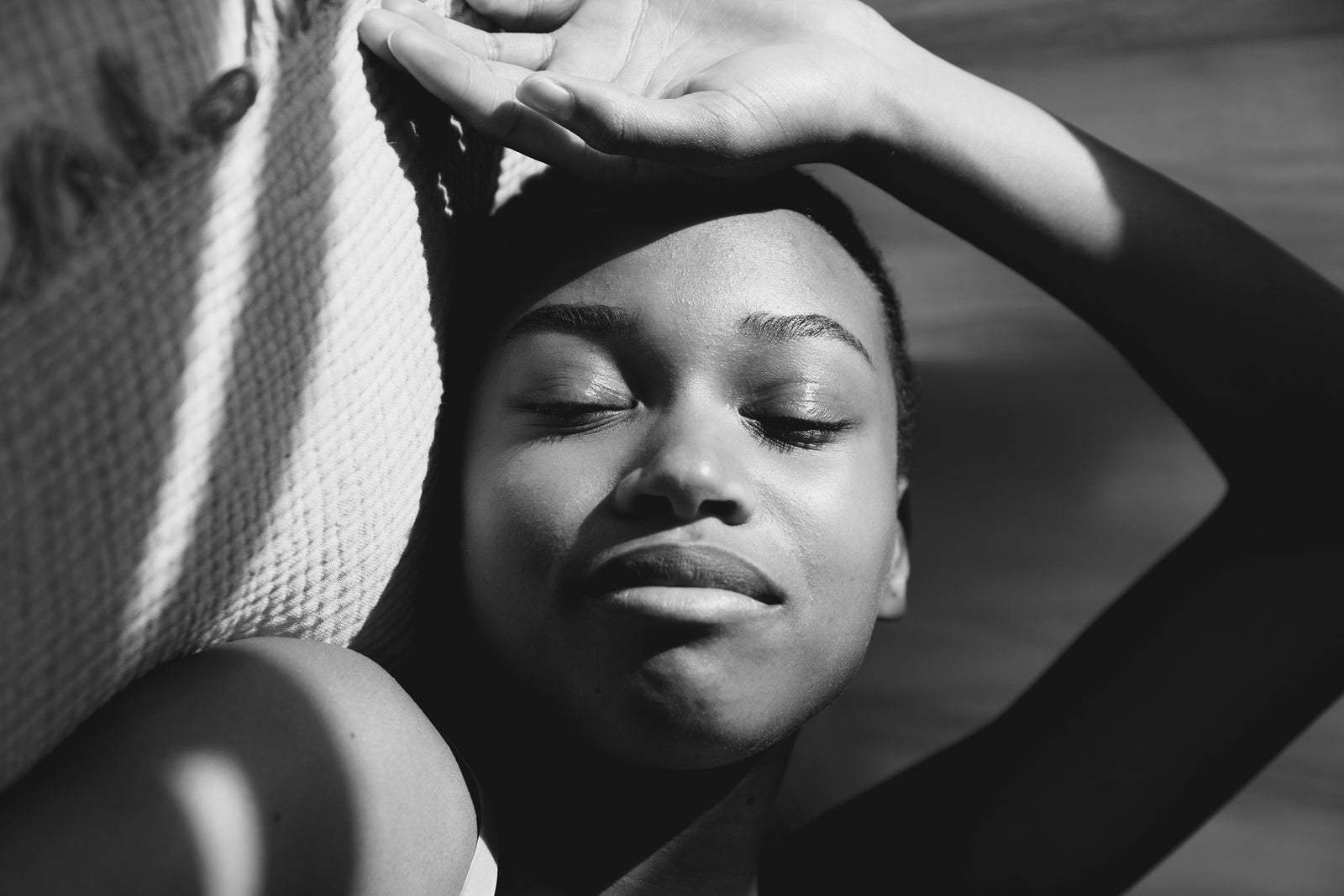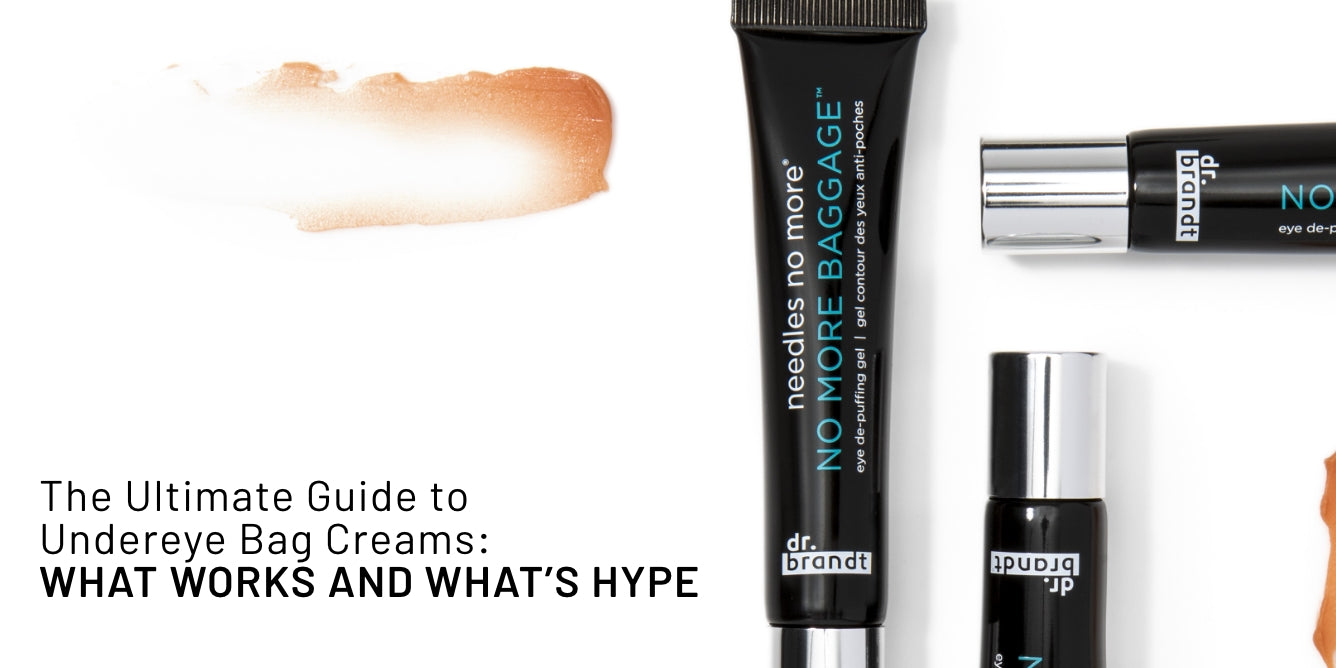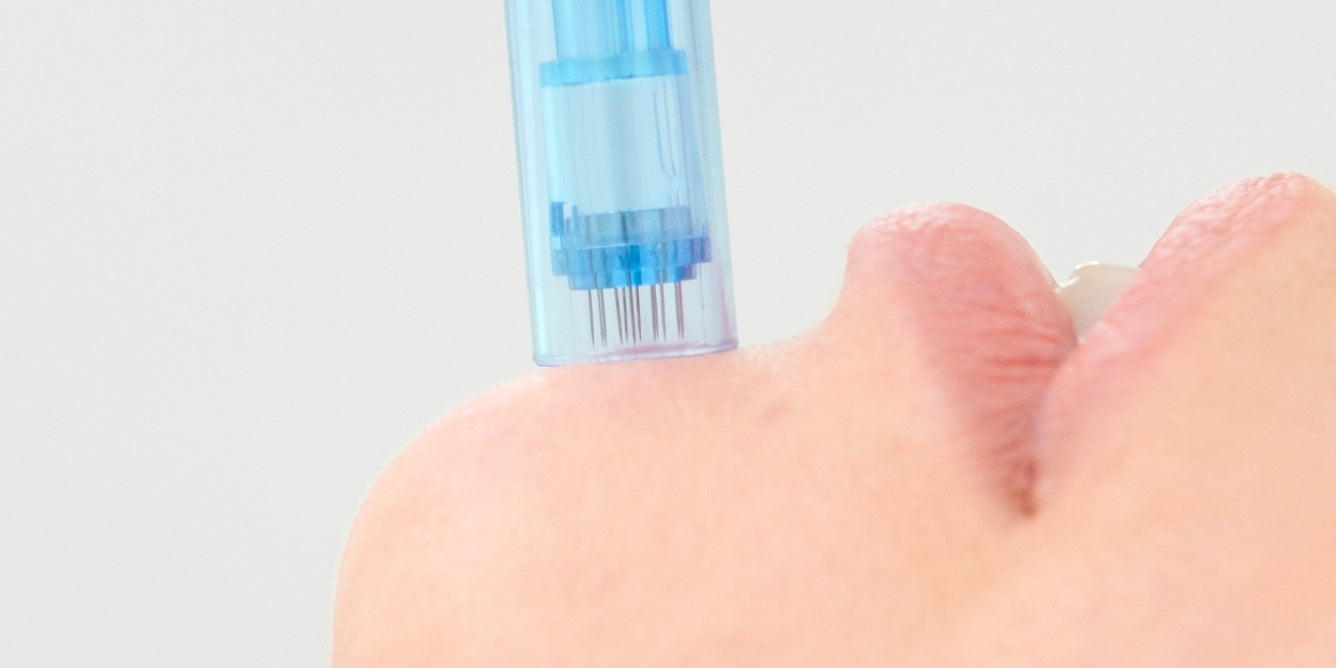
One of the most noticeable changes in our lifestyle since the start of the COVID-19 pandemic is the amount of time we now spend in front of screens. From children attending school via Zoom to virtual meetings to an overall increase in time spent in front of our laptops, computers and phones, screentime is arguably an even bigger part of our lives than it was before (for all ages) —and that’s saying something. More screen time means more exposure to blue light, particularly in the evening, which can have a number of consequences for your health. In this article, written by board-certified dermatologist and Skin Advisory Board member, Dr. Shasa Hu, we will go over blue light effects on the body and how to better prepare yourself for any complications created.
What is blue light?
Blue light refers to a portion of visible wavelengths of light ranges from 400 to 525nm. Sunlight is a notable source of blue light - and for good reason. Blue light is directly linked to our circadian rhythm, suppressing melatonin, the hormone largely responsible for controlling the sleep-wake cycle. This helps boost our attention, alertness, focus, and even mood (which explains why you tend to feel more positive on sunny days). In the daytime, this is useful and necessary. However, thanks to the advent of digital screens - another major source of blue light - blue light is now becoming a part of our evenings, too. Unfortunately, this can majorly interfere with your sleep pattern, worsening insomnia, energy, and ultimately leading to health disorders related to lack of sleep.
Blue light’s effect on eyes
Though many eyewear brands now include blue light filters on their lenses, the impact of blue light on eyes remains somewhat uncertain. While there is increasing public concern over the potential risk of cataracts or other eye diseases from prolonged blue light exposure, the American Academy of Ophthalmology states that there is no scientific data linking cataracts, glaucoma or other eye diseases to blue light. The discomfort some people experience after staring at led screens is most likely digital eye strain or dry eyes. And eye strain does not lead to lasting damage to our vision or eyes. You can significantly lower eye strain while using screens by pausing briefly every 20 minutes or so to look at a faraway object.

Blue light’s effects on sleep
While the link between blue light and eye diseases is unclear, it is certain that blue light exposure at night can impact your sleep quality. It does this by disrupting your circadian rhythm. Circadian rhythm is our body’s natural biological clock, the mechanism that helps your body distinguish between day and night, triggering alertness or restfulness. Normally, at night, your biological clock triggers brain functions that induce sleepiness. It’s a complex response, but it’s closely related to the dimming of light. Unfortunately for your internal clock, modern life and electronic devices have completely changed our relationship to darkness. Where people once went to bed and woke up with the sun, now we can simply turn on the lights. While any kind of brightness tends to affect sleep patterns, the kind of blue light emitted by devices is particularly good at suppressing melatonin - which is why it’s recommended you stop using screens at least an hour before bed. Watching too much TV, scrolling through your phone, or playing on iPads late into the night essentially tricks your brain into thinking that it’s daytime. It’s fair to compare looking at a screen before bed to drinking a cup of coffee at night: both artificially rev up your system, making it not only harder to fall asleep, but to stay asleep. The long-term effects of an irregular sleep schedule or poor sleep quality may contribute to major health issues such as diabetes, obesity, and cardiovascular disease.

Is blue light damaging your skin?
While most people are aware of the damaging effects of ultraviolet (UV) rays on skin, including sun spots, premature aging, and the formation of skin cancers, it is not common knowledge that blue light also impacts skin health. People with skin prone to hyperpigmentation, and those with melasma (a condition that results in dark patches on the forehead, cheeks, and upper lip) may need to pay attention to blue light exposure. This is in part because blue light stimulates melanocytes (cells that produce melanin), leading to the appearance of dark patches or the worsening of hyperpigmentation. Blue light can also trigger increased inflammation in skin cells (i.e. oxidative stress), which can result in faster breakdown of collagen, as well as the appearance of premature signs of aging, including wrinkles and thinned skin. The dermatological effects of blue light are usually slow and insidious: it may take months or even years for a person to see any visible impact on skin.
How to protect your skin from blue light
One of the easiest ways to shield your skin from the potential effects of blue light is to limit your screen time, especially in the evening. Consider buying a screen protector with a blue light filter for your phone or wearing blue light-blocking reading glasses. Some smartphones even include a nighttime setting that changes your screen’s hue to a warmer tone after sunset. Otherwise, impossible as it may seem to some, restricting your non-essential screen time to less than 1-2 hours a day can dramatically lessen the effects of blue light on your circadian rhythm, and by extension, your skin. It’s important to note that certain skin conditions like acne, rosacea, and eczema can flare up in response to increased cortisol, which is one of the consequences of a lack of sleep.
As I mentioned earlier, UVs aside, sunlight is a major source of blue light. All the more reason your daily skincare routine should include a sunscreen that provides broad-spectrum UVA and UVB protection. Look for a mineral sunscreen that contains iron oxide or zinc oxide, which create a physical barrier on skin that can also help block out blue light. This is particularly important for people suffering from rosacea or melasma, since blue light can trigger more redness and hyperpigmentation. Reminder: if you spend a lot of time working in front of a screen or sitting near a bright window, you’ll need to reapply during the day.
Discover our dr. brandt Liquid Sun Shield SPF 50 Mineral Sunscreen to protect your skin against UV rays, pollution and HEV/Blue light.




Leave a comment (all fields required)